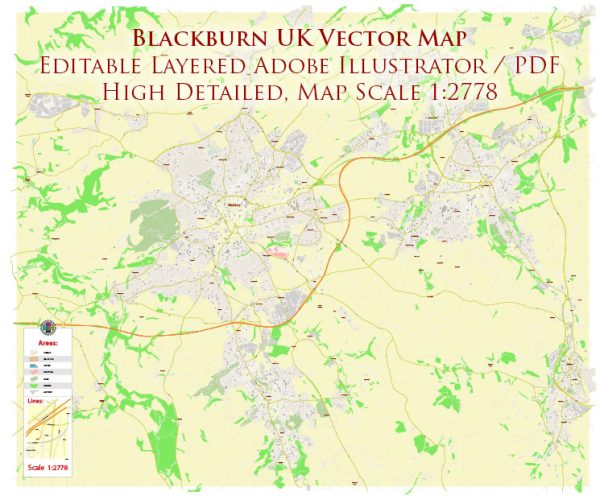Blackburn is a historic town located in Lancashire, England. Its history dates back centuries, and it has played a significant role in the industrial and cultural development of the region. Here’s a brief description of Blackburn’s history:
- Early History: Blackburn’s history can be traced back to the Roman period, with evidence of Roman roads in the area. However, it was during the medieval period that Blackburn began to take shape as a market town.
- Industrial Revolution: Blackburn’s history is closely tied to the Industrial Revolution. In the late 18th and early 19th centuries, the town experienced rapid industrialization, particularly in the cotton industry. Cotton mills, weaving, and textile manufacturing were the backbone of the local economy. The Leeds and Liverpool Canal, which passed through Blackburn, played a crucial role in transporting raw materials and finished goods.
- Population Growth: The Industrial Revolution led to a significant increase in the town’s population as people moved to Blackburn in search of work in the textile mills. The town’s population grew, and it became an important industrial center in the region.
- Political History: Blackburn has historical significance in terms of its political landscape. The town elected the first working-class Member of Parliament (MP) in the UK, Robert Owen, in 1841. This event was significant in the context of labor and political history.
- Religious and Cultural History: Blackburn has a rich religious and cultural heritage. It is home to various churches, including Blackburn Cathedral, which is a prominent landmark. The town has also been known for its diverse cultural and ethnic communities.
- Modern Era: In the post-industrial era, Blackburn, like many other industrial towns in the UK, faced economic challenges due to the decline of the textile industry. However, it has diversified its economy and focused on sectors like education, retail, and healthcare.
- Landmarks and Attractions: Blackburn is known for its cultural institutions, including the Blackburn Museum and Art Gallery, and the King George’s Hall, which hosts various events and performances. The town is also known for its parks and green spaces, such as Corporation Park and Witton Country Park.
- Football: Blackburn is famous for its football club, Blackburn Rovers FC, which has a rich history and has competed in the English Football League.
Today, Blackburn is a thriving town with a diverse population and a mix of historical and modern influences. It continues to evolve while celebrating its rich industrial and cultural heritage.


 Author: Kirill Shrayber, Ph.D.
Author: Kirill Shrayber, Ph.D.